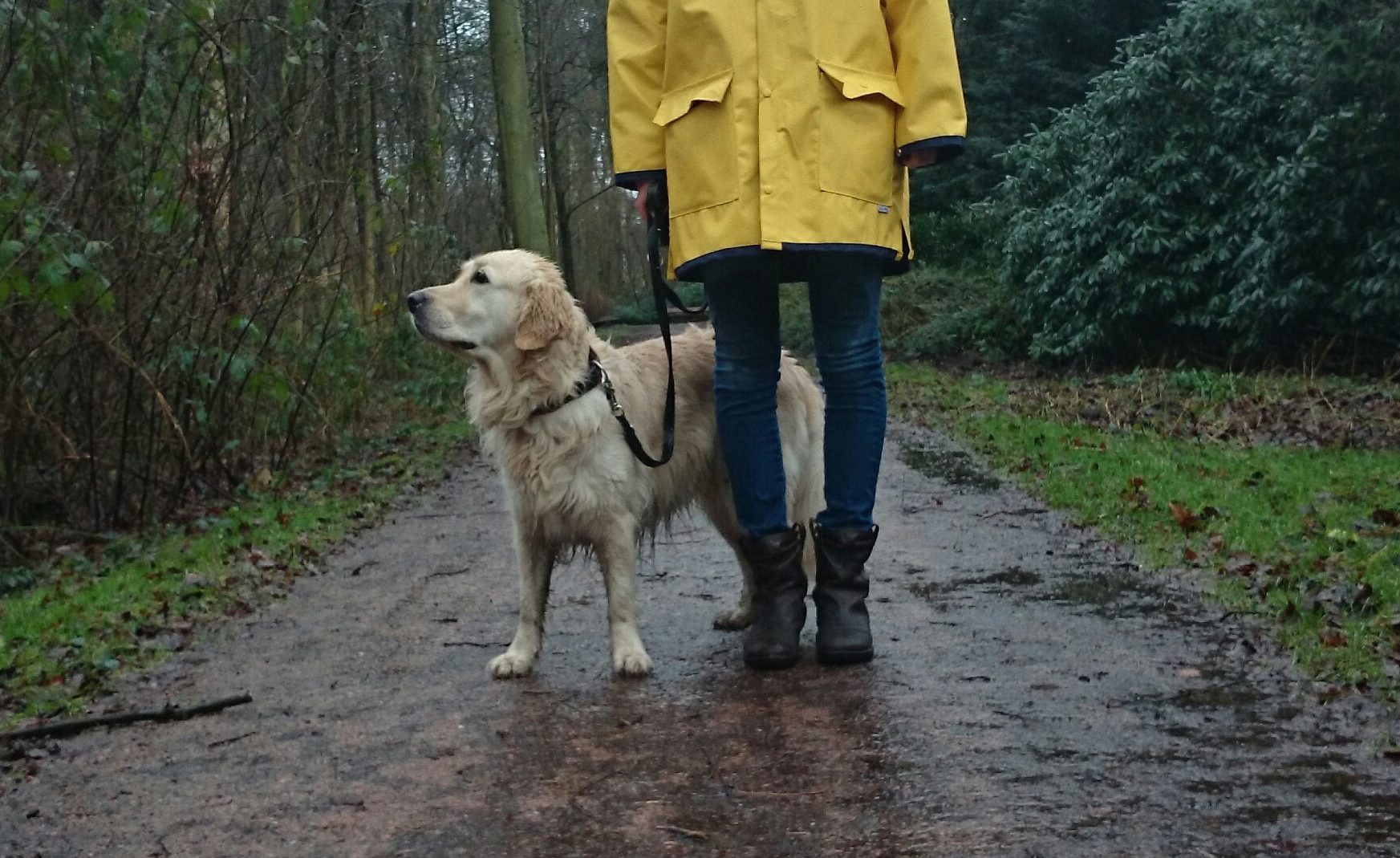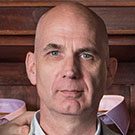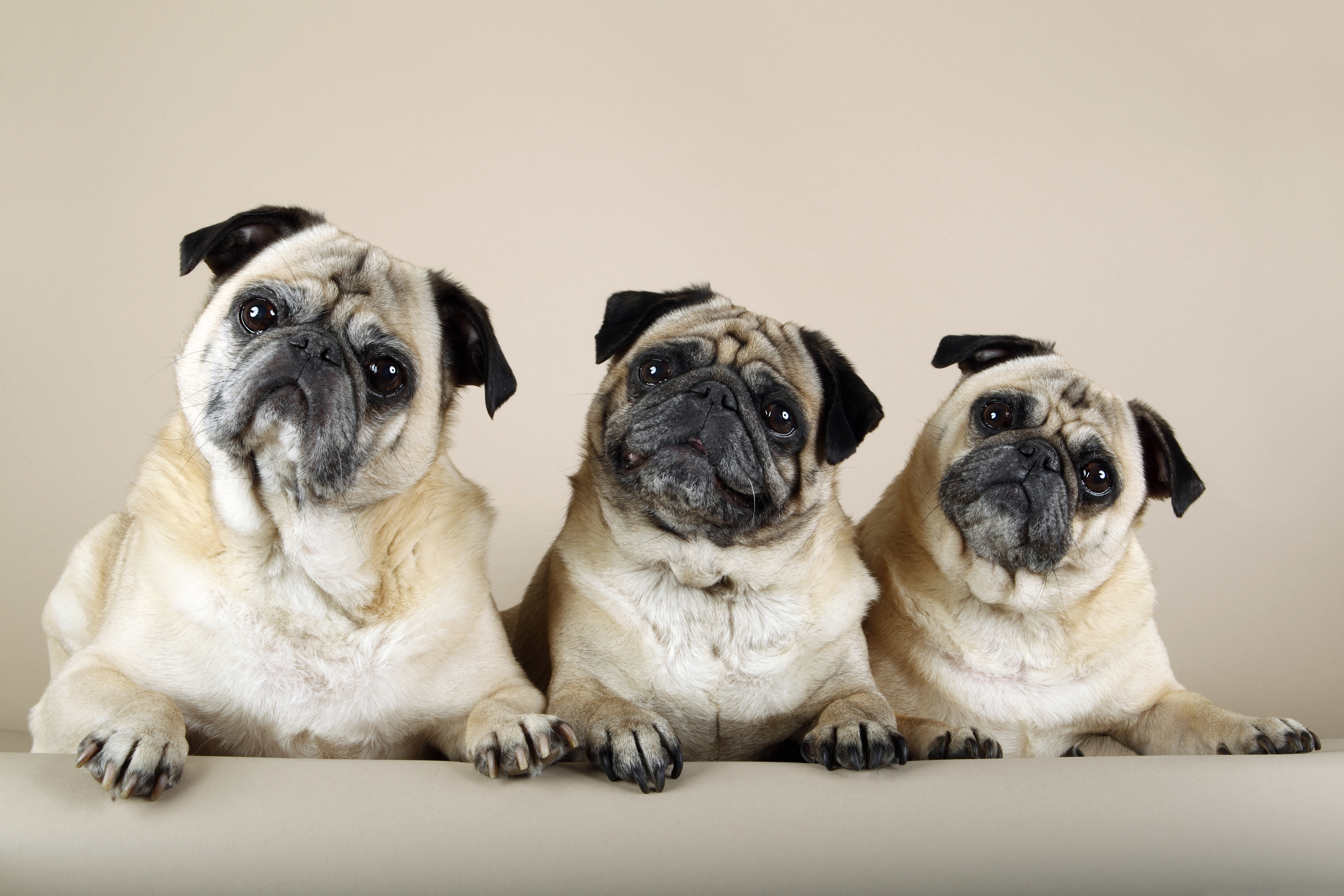Jonathan Self: What can you do with dogs? Their yea is yea and their nay, especially in lashing rain, is nay
It's raining, and Jonathan Self is outside waiting patiently for his dogs to do their business.


Here I am standing in our home field getting soaked yet again. I am wearing pyjamas, wellies and the first hat I grabbed as I came out, my Great-Uncle Martin’s giant pith helmet, a sort of wearable umbrella, if a shameful reminder of my family’s colonial past. Cosmo, our bichon frisé, and Elsa, our blue whippet, are doing their best to squeeze themselves between my legs in the mistaken belief that they will be drier. Despite having not been outside since late last night, they are obstinately refusing to relieve themselves.
That is the thing about dogs: a complete absence of pretence and a strict adherence to Matthew 5:37, i.e. their yea is yea and their nay, especially in lashing rain, is nay. They certainly have no need of my friend Mark Usher’s brilliant new book, How To Say No, which I finished in a single sitting yesterday. It has a remarkably canine theme to it, being about Diogenes, known as ‘The Dog’, and the original cynics, a translation of kunikos which comes from kuon, the ancient Greek for ‘dog’. I thought the Cynics were called dogs because the first of their number, Antisthenes, taught in the Cynosarges gymnasium, the ‘place of the white dog’, but Mark says it is because they rejected conventional manners and lived on the streets.
Diogenes stood outside all traditions and pitted a life lived ‘according to Nature’ against one lived in ‘unthinking compliance with Custom’. His less-is-more, put-up-and-make-do philosophy has a very contemporary feel to it. When asked why he compared himself to a dog, he said: ‘Because I fawn on those who give, I bark at those who don’t and I bite scoundrels.’
Anyway, there is clearly a long-standing connection between Man’s best friend and saying ‘no’. Diogenes, of course, famously lived for a while in a wine barrel making him the first of a long line of negatively minded philosopher hermits. Of these, Henry David Thoreau is probably the best known. However, the two years Thoreau resided in his Walden Pond cabin, rejecting society but popping into the Emersons’ when it suited for a square meal and clean laundry, were as nothing compared to the 15 years the 12th-century Japanese recluse, Kamo no Chomei (he even had ‘no’ in his name), spent in a 10ft-square hut in the remote hills of Toyama writing gloomy poetry.
My mother loved gloomy poetry, and perhaps it was to counter its effect that she occasionally read a page or two of Norman Vincent Peale’s The Power of Positive Thinking last thing at night. When she did this, my father, doubtless to annoy her, would read (or pretend to read) from Roger Price’s The Power of Negative Thinking. What Brownie, the dog, who slept at the end of their bed, perused before sleep remains a mystery. Brownie, like all the members of my family at that time, leapt at any opportunity to get out of the house. The moment the door was opened she would rush through it no matter how dreadful the weather.
I never — Cosmo and Elsa pay attention: I am talking to you — had to search under every bed in the house for Brownie. Nor did I have to carry her physically outside. She didn’t cower in the porch, either, or say (if not by words, through looks) that she was going to report me to the RSPCA for cruelty. In short, Cosmo and Elsa, I never had to stand in a field getting cold and wet waiting for Brownie to finish her business, so, for all our sakes, would you please hurry up?
Sign up for the Country Life Newsletter
Exquisite houses, the beauty of Nature, and how to get the most from your life, straight to your inbox.
-
 Some of the finest landscapes in the North of England with a 12-bedroom home attached
Some of the finest landscapes in the North of England with a 12-bedroom home attachedUpper House in Derbyshire shows why the Kinder landscape was worth fighting for.
By James Fisher
-
 The Great Gatsby, pugs and the Mitford sisters: Country Life Quiz of the Day, April 16, 2025
The Great Gatsby, pugs and the Mitford sisters: Country Life Quiz of the Day, April 16, 2025Wednesday's quiz tests your knowledge on literature, National Parks and weird body parts.
By Rosie Paterson